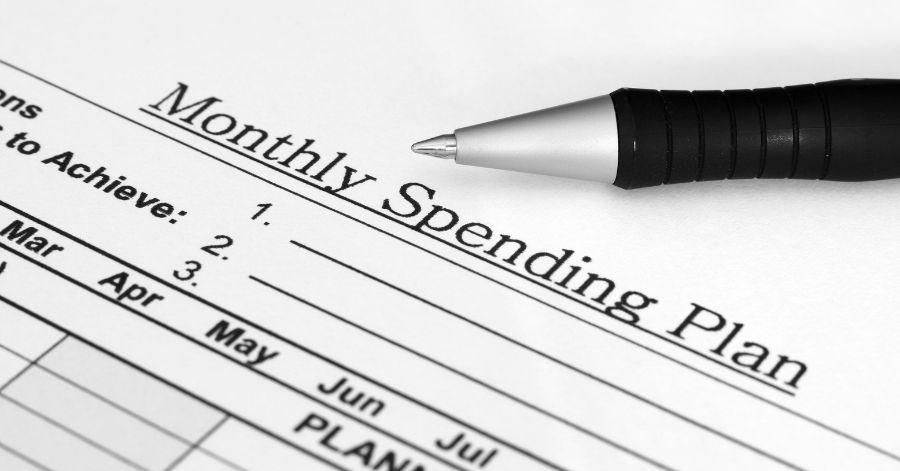Amid the cost of living crisis, it’s no surprise that households across the UK are having to reevaluate their spending habits, and what needs to be done financially to stay afloat. Especially during the winter months with colder temperatures and the rising cost of energy too, many may turn to budgeting and spending plans to help keep on top of their finances during this challenging time.
But, what are spending plans and how can they help you to manage your money proactively? Carry on reading this article to learn more about them.
What is a Spending Plan?
Put simply, a spending plan is a type of budget which is used to help you outline and break down your income and expenditure over a specific period of time. Broken down into your chosen categories, such as:
- Household costs (e.g. mortgage/rent payments, council tax, insurances and more)
- Utilities (e.g. electricity, gas, water and telephone bills)
- Transportation (fuel, vehicle maintenance/payments, local transport passes and more)
- Groceries
- Entertainment (e.g. meals out, kids activities, holidays and more)
- Necessities (Clothing, toiletries, prescriptions and other items)
- Savings
- Emergency funds
Depending on each household, every spending plan will be different based on their priorities. For example, a personal spending plan will differ from a family spending plan which may have to account for childcare and many other expenses. Despite this, many households will have priority bills which have serious consequences if not paid on time
Having a clearly defined spending plan will allow you to plan your spending strategically and gain greater knowledge and control over where your money is spent. This way, you’ll be able to work towards your financial goals in a way which is tailored to your lifestyle.
How is a Spending Plan Different From a Budget?
While a budget is the more traditionally known type of financial plan, there are slight differences between the two. A spending plan is a more flexible type of roadmap which has less of a focus on strict limits and is more intention-based, compared with a budget which is more rigid and structured in what can and cannot be spent on certain areas.
Budgeting is often suggested as part of our debt advice service, which you can access any time, day or night. Using our online debt advice tool, you can input your details and get your debt advice instantly on screen. If you’re advised to start budgeting to help with your spending habits, our advisors will be here to help create a budget which works for you.
How to Make a Spending Plan
Making a spending plan can be an extremely beneficial way to monitor your spending, and it doesn’t cost anything to do so! We’ve listed some steps below to help you create a personal spending plan:
1. Review your finances
Take a look at your monthly income, whether that be your wage from work, any benefits you claim, grants and so on. Write this down, and then list all your fixed monthly expenses (as listed above) and any others which we’ve not listed.
Once completed, group these expenses into categories to help you get an idea of how much you spend on each section.
2. Think about what your financial goals are
Your financial goals are personal to you, and your spending plan should reflect that. Consider what it is you want to achieve in a set period of time, whether that be paying off your existing debts, saving for a mortgage deposit, a car etc.
These could be categorised into your short-term and long-term goals, so it’s a good idea to think about what you really want to achieve with your spending.
3. Start with the necessary expenditure
Once you’ve determined your goals and what you need to get there, write down how much money you need to help you pay your necessary expenses. Cover all your priorities first, and then you will be left with your disposable income (DI). It’s then up to you how much you want to spend on each category with your remaining budget.
4. Incorporate savings
It’s always a good idea to be stashing any money you can away into your savings. By allocating a set amount each month, you’ll slowly be building up your savings without being a surprise hit to your disposable income each month.
5. Review your spending plan
The benefit of a spending plan means that you can be more flexible with how you choose to spend your money, as other factors might change from month to month. Make sure to regularly review your plan to see if it’s something you are able to keep up with, or whether you need to make any changes.
Get Debt Advice With Us
Making steps to take control of your finances is important, and can be done in ways which are tailored to you. Whether you decide to create a spending plan or a traditional budget, we are always here to help you along the way. Getting debt advice online with us is simple, just start your online debt advice journey here and we will help with the rest. Or, if you’d like to speak to an advisor directly, contact us today.


